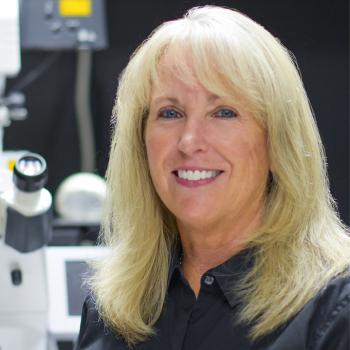Bio
Dr. Denise Monack, Ph.D., is the Martha Meier Weiland Professor of School of Medicine in the Department of Microbiology and Immunology at the School of Medicine at Stanford University. The primary focus of her research is to understand the tug-of-war between the immune system and bacterial pathogens during infections. She is particularly intrigued by host-adapted enteric pathogens that have evolved to persist within hosts for long periods of time and spread to new hosts. She has discovered specific immune responses that help the host tolerate high levels of pathogen, referred to as “superspreaders”. She studies pathogen-microbiota interactions in the gut and has discovered that specific commensal bacteria-derived metabolites help defend against bacteria that cause food poisoning. In addition, her laboratory studies how immune cells recognize pathogenic bacteria that are residing within them. Her lab discovered that two innate immune pathways are sequentially linked and that this 2-tiered response is a host gauge of the “danger” level before commitment to host cell death. She has received numerous prestigious awards in microbiology and immunology, including The Burroughs Wellcome Fund Recipient in Infectious Disease, Society of Leukocyte Biology G. J. Thorbecke Award, Stanford University Postdoc Association Mentor Award, Max Planck Sabbatical Award, Elected Chair of Division B, American Society of Microbiologist, and is an elected Fellow and Governor to the American Academy of Microbiology. She is Section Editor at PLoS Pathogens, Editor at Infection and Immunity. She is currently the Principle Investigator of the NIH Training Grant in Microbiology and Immunology at Stanford and Chair of the Department of Microbiology and Immunology at Stanford University School of Medicine.


